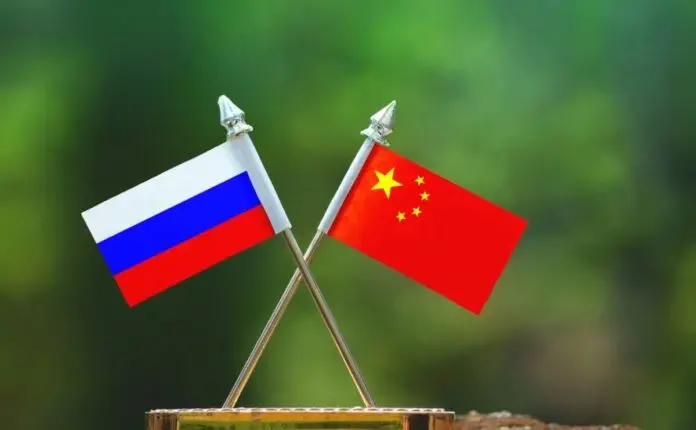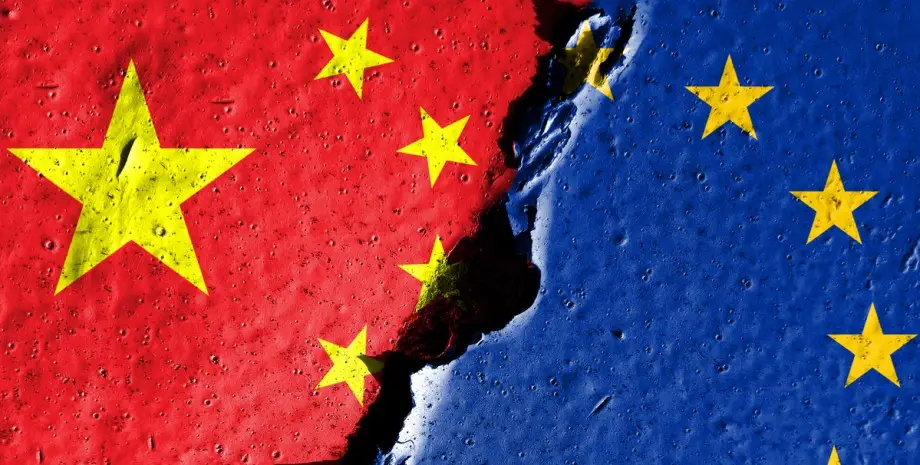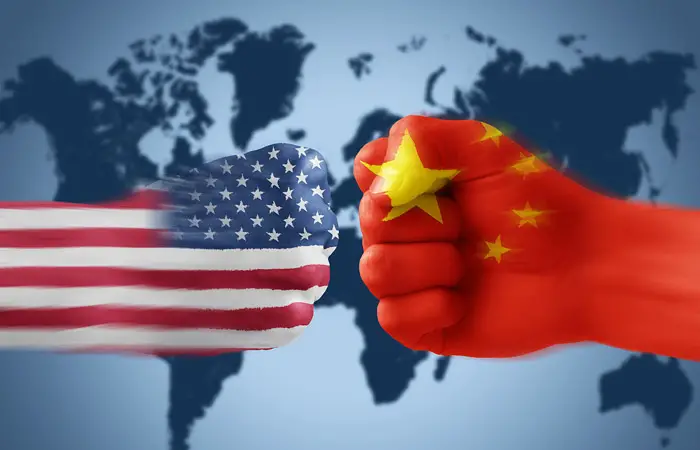The "Axis of Evil" is breaking down, or why China is cutting its ties with russia

But what are the consequences?
Chinese banks that continue to cooperate with russia are leaving the sanctioned moscow Exchange. Over the past two weeks, trading in Chinese currency has seen a significant decline in the average transaction size: compared to May, this figure fell by 14% to rub 1.89 million, the lowest level since February 2023.
At the same time, the turnover of the OTC yuan market increased sharply: in June, transactions worth rub 1.98 trillion were concluded, which is 27% more than in May. Intraday turnover broke records three times, exceeding rub 200 billion per day. This indicates that the flows of yuan coming to Russia for oil sold to China are moving from the exchange market to the over-the-counter market, following the dollar and euro, which were suspended on June 13.
The Central Bank of the russian federation is already preparing for the possibility of suspending trading in the yuan, similar to the situation with the dollar and euro.
Chinese banks are likely to gradually reduce their transactions with the moscow Exchange and the National Clearing Center, which has also been sanctioned.
In addition, the Chinese company Wison New Energies, which was engaged in the construction of modules for the Arctic LNG-2 project, announced the suspension of its activities in russia in order not to lose other, more important projects due to sanctions.
Is China, perhaps russia's most important ally, slowly starting to join the sanctions against it?

What is the reason for such decisions on the part of Beijing?
First of all, it should be understood that in a situation where China has to choose between the US and the EU as opposed to russia, Beijing will choose the first option.
China is motivated by fairly simple and predictable motives: access to the EU and US markets, access to their technologies and capital, and no other region of the world can give China what the US and EU have. For example, the share of russia in China's trade turnover in 2023 is 4%, while the share of the United States and the European Union is 24%.
By its actions, China hints that it will create some opportunities for trade with russia, but these will be small volumes, and these opportunities will not include large companies. They will not be able to solve the main problems, at least on a large scale. Perhaps they will help solve some small issues, but no more. Beijing will never take moscow's side 100% of the time; it would be too unprofitable for it. It is important for China to maintain friendly relations with its main markets, the EU and the US, especially given the EU's policy of reducing its dependence on resources from China.
In particular, the EU plans to reintroduce duties on cheap goods purchased on Chinese platforms AliExpress, Temu, and Shein. Also, the EU has decided to impose additional duties on imports of Chinese electric vehicles up to 38.1% over the current 10%.
European customers are increasingly concerned about their dependence on China, especially in non-food retail, such as clothing, home appliances, electronics, and toys. Therefore, some countries have begun to actively look for ways to diversify their demand for goods from China. For example, European textile companies are increasingly cooperating with India, Bangladesh, and Vietnam, despite longer lead times and higher costs.
Beijing realizes that close ties with Moscow lead to the loss of strategic markets, which is extremely unprofitable for it, so it is ready to make concessions in order to preserve the most favorable economic model.

What to expect next?
China is actively promoting the concept called "One Belt, One Road", which aims to create a powerful trade infrastructure between Beijing and the European Union. In turn, European countries are trying to find a balance in relations with China, maintaining economic ties but limiting their depth due to geopolitical risks and economic inequality. The EU seeks to protect its interests by preventing China's excessive influence, especially given the geopolitical tensions in the world.
The war in Ukraine makes Europe cautious about close contacts with China, which supports russia. Although European countries want to maintain economic ties with China, they cannot ignore its support for russia's aggressive actions, and Beijing is well aware of this.
But at the same time, Beijing has its own geopolitical interest in confronting the United States. For China, this is a matter of principle. Beijing sees the United States as its main geopolitical adversary not only because of the Taiwan issue, but also in the broader geopolitical context. The United States also perceives China as its main potential adversary. From this point of view, China sees russia's war against Ukraine as a conflict between russia and the West, in particular, against the United States.
In this regard, it is more important for China to remain formally neutral. However, in practice, this neutrality is orienting China closer to russia. This must be taken into account as an objective situation.
It is important to understand the specifics of China's foreign policy. The main goal of China's foreign policy is to restore the former greatness, dignity, and sovereignty of its state after a long period of "humiliation" and "weakness." Unlike the Soviet Union, China has never attached great importance to "exporting" its ideologies abroad. The principles of "socialism with Chinese characteristics," developed by the May 4 Movement and leftist intellectuals such as Zhou Enlai and Chen Tangqiu, envisioned a self-sufficient system that was only suitable for China. Also, unlike the modern russian federation, China does not have a coherent and understandable concept of the "Chinese world," which they seek to create by force through territorial expansion and regime change in neighboring countries.
For China, the "Chinese world" already exists — it is China itself, which has always been considered the center of the world. Therefore, China has no need to conquer other countries, but rather wants to be recognized as an equal participant in international relations. Therefore, Beijing's further actions in the geopolitical arena will be based primarily on what is more beneficial for the country.










